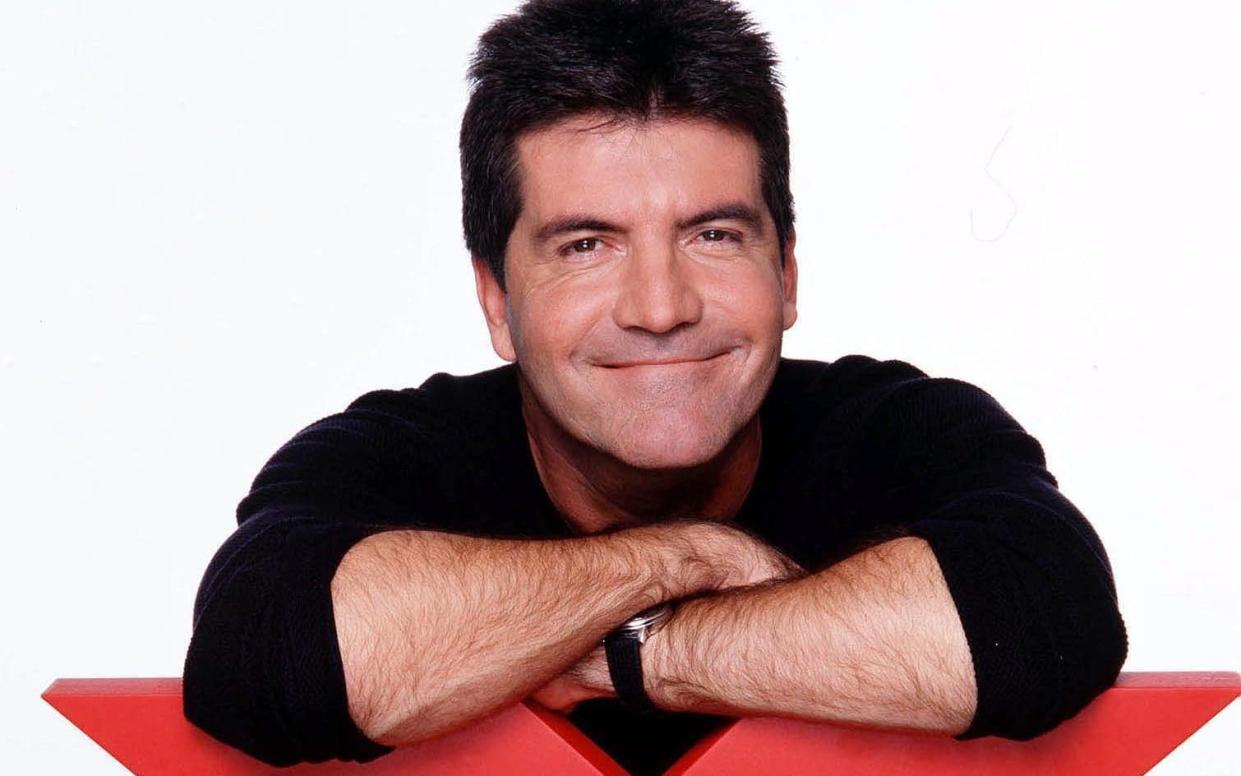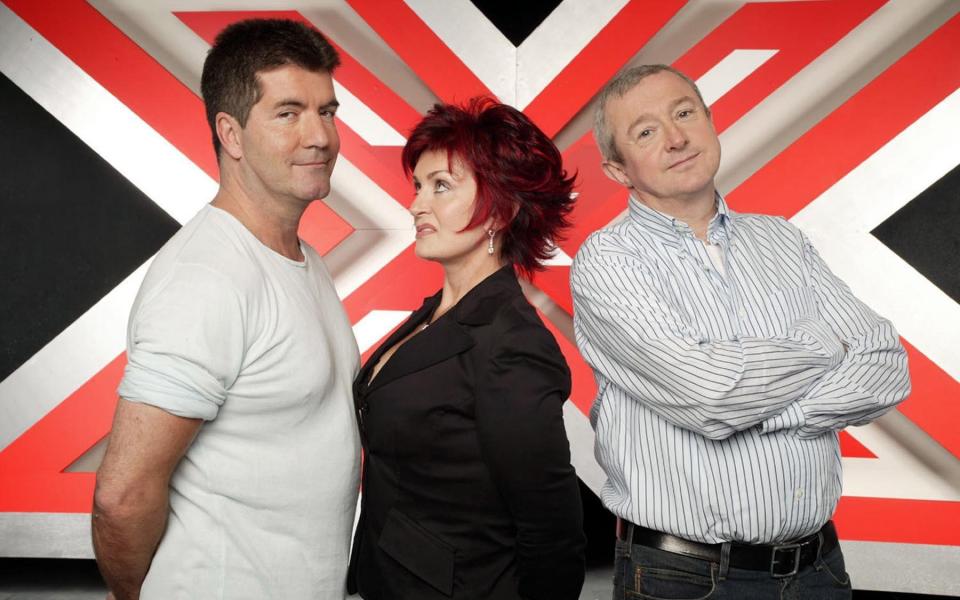Even without The X Factor, only a fool would write off Simon Cowell

- Oops!Something went wrong.Please try again later.
- Oops!Something went wrong.Please try again later.
- Oops!Something went wrong.Please try again later.
ITV has finally thrown in the Cowell. The broadcaster has announced there are “no current plans” for a new season of The X Factor, the glitzy talent contest which Simon Cowell parlayed into a global brand and which has changed the face of pop.
Detractors have been writing off The X Factor and its creator for years – even before it produced two of the world’s biggest groups in One Direction and Little Mix. And so there may be an inclination to dance on the show’s grave. And to exult in the perceived humiliation of Cowell, who, amid nose-diving ratings, has finally flunked his own audition before the British public.
Yet it would be hugely premature to do so. It was Cowell who, by all accounts, insisted on pulling the plug after 17 years. With viewership for the most recent final in 2018 plunging to a low of 5.7 million and winner Dalton Harris returning immediately to obscurity, the jig was obviously up. And Cowell will have wanted his creation to go out like Take That or The Beatles by calling it quits when at least some people still cared. Far from an embarrassment it’s further proof of his instinct for surviving a cut-throat industry.
Besides, he’s already moving on to new things. Specifically an upcoming game show, Walk the Line, set to debut on ITV in the autumn and which promises to be an unlikely mix of The X Factor and Who Wants to be a Millionaire? The premise, to be fair, sounds bonkers. Each night two musical performers will vie to impress a panel of judges. At the end, the winner can either bank a big cash prize – or roll over the winnings and take on another challenger the following evening.
It’s certainly a departure for Cowell. But then he has always been all about taking risks. For proof we need only look at the success of his Syco record label, which pioneered the concept of “pop classical” with Il Divo even as it conquered the charts with One Direction and Little Mix. Or at Britain’s Got Talent, which has now outlasted The X Factor and is returning for a 15th series in 2022. It minted TV gold out of the far-fetched idea that viewers would be willing to watch amateur comedians, dance troupes and animal trainers engaged in a figurative battle to the death (egged on by David Walliams and Amanda Holden in a controversial frock). Meanwhile, America's Got Talent continues to prosper and reached seven million viewers in June.
But even if the end of X Factor were curtains for Cowell, look at what he’s achieved. Pop was in a tragic place when The X Factor started in early 2004. It was dominated by gauche imports. And there were no bright-eyed young stars for teenagers to scream at and obsess over.
With The X Factor Cowell changed all that. Yes, it was a cynical production line. However, it’s hard to condemn a conveyor belt which gave the world One Direction, a soap opera and boyband rolled into one. Or Little Mix, who showed that women in pop could control their own destiny and face down the haters.
And then he did it all over again with American Idol, the US X Factor spin-off which continues to this day (after a brief hiatus several years ago). In the era before YouTube, these shows offered a crucial shop window for people who did not tick the usual music industry boxes. Examples included Kelly Clarkson, who had to grow into herself as a stage presence on American Idol (she would never have been allowed to do so in the real world). And Adam Lambert, who spoke about his sexuality at a time when gay pop stars were still largely expected to stay in the closet (albeit after being “rumbled” paparazzi).
The same was true of X Factor. Watching the original auditions by future One Direction members Harry Styles, Niall Horan et al. and it’s clear they are far too wet behind the ears and ragged at the edges to have succeeded in the conventional music industry. They weren’t diamonds in the rough. They were cheeky young men with a star potential that only Cowell alone could recognise.
Cowell offered them a chance they would never have otherwise received. And in so doing he blazed a trail for a new generation of more relatable stars. YouTube would eventually come along and usurp X Factor – if you are eager and undiscovered, it is the internet rather than ITV where you go make your reputation nowadays. Cowell, though, got there first. And that is arguably his true legacy.
It’s worth noting that he always remained hugely respected within the music industry. That remained the case even as he was caricatured on TV as Saturday night’s resident villain, with his pantomime high-hitched trousers and baroque eye-brows. Beyond the shtick, fellow record company moguls recognised a proven hitmaker.

“A brilliant record maker with phenomenal instincts for crossover hits,” is how Lucien Grainge, chief executive of Universal Music Group, described Cowell in 2018 when the X Factor creator was honoured with the prestigious A&R Icon Award at the A&R Awards.
“Simon knows what makes something connect to another person,” agreed Camila Cabello, discovered on X Factor US (not to be confused with American Idol) . “He knows if you sing songs that have nothing to do with you or your artistry, people can tell. The most important thing to him is that the music and the artist connect and it all makes sense.”
Cowell’s greatest talent of all, however, is perhaps his ability to connect the music with the viewing public. X Factor lasted a remarkable 17 years. Before selling it for $500 million Cowell turned Syco into a power-house, introducing the world to artists as diverse as Susan Boyle (a Britain’s Got Talent phenomenon), Labrinth (who contributed to the acclaimed soundtrack of HBO’s Euphoria) and, of course, One Direction and Little Mix.
That’s a lifetime of pop triumph squeezed into just a few years. And it suggests that, far from a busted talent show flush, Cowell is merely moving on from one phase of his career and beginning the next blockbuster chapter.

